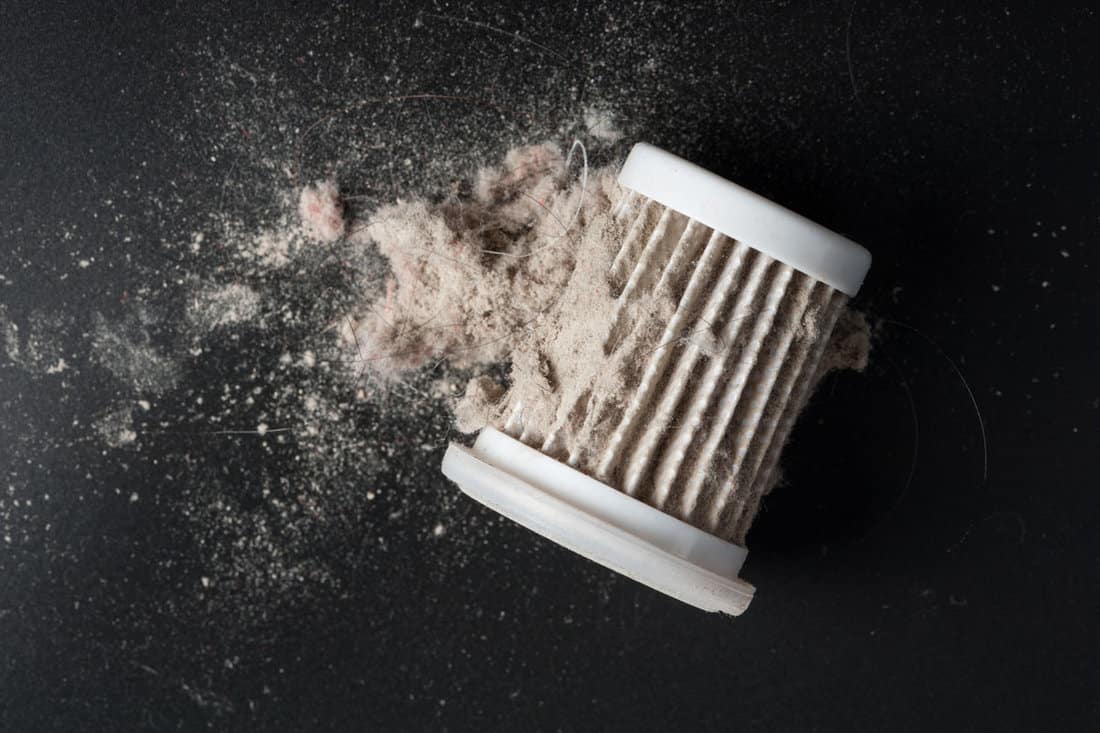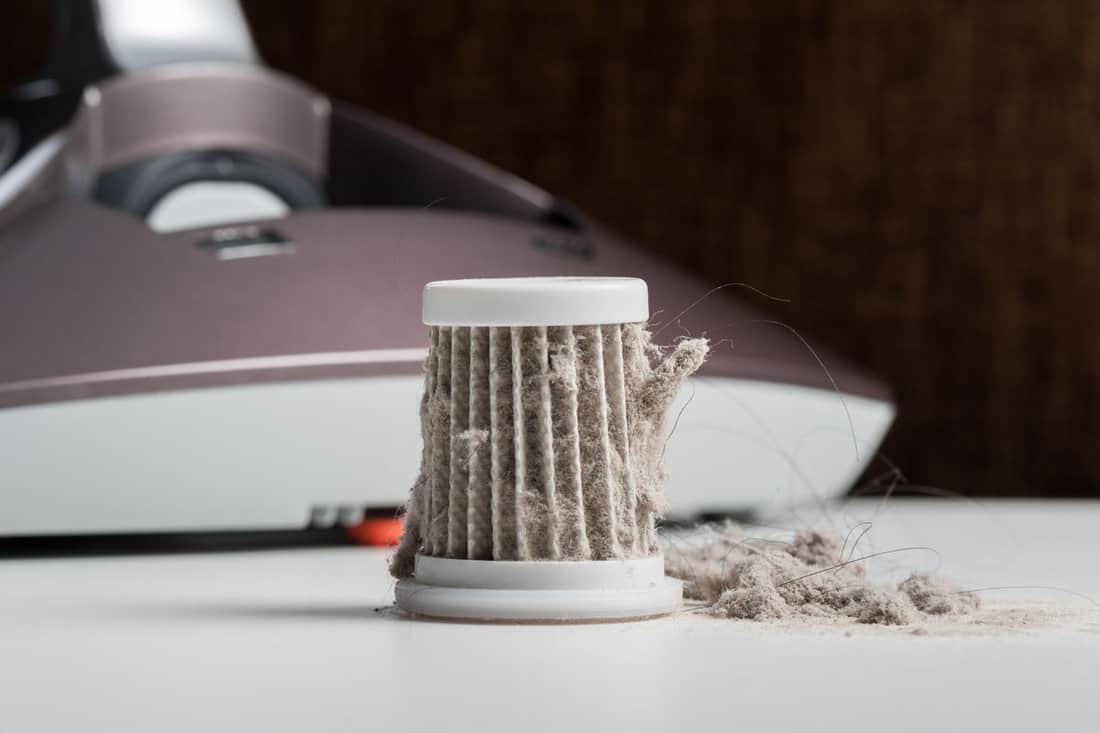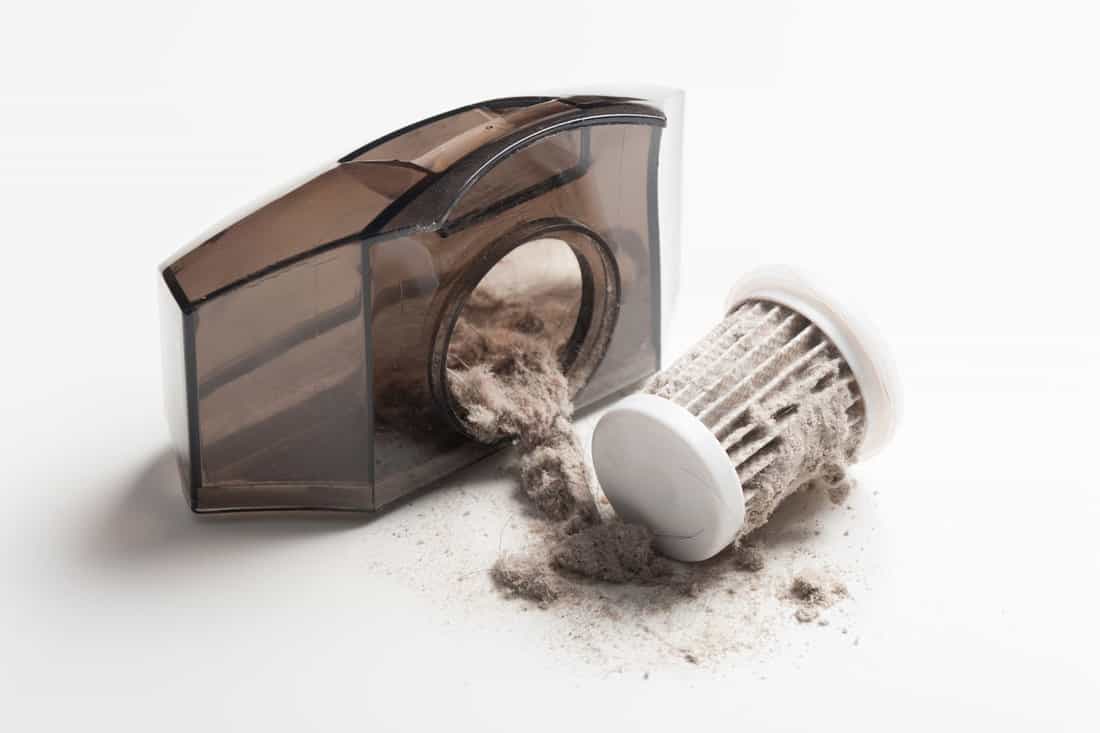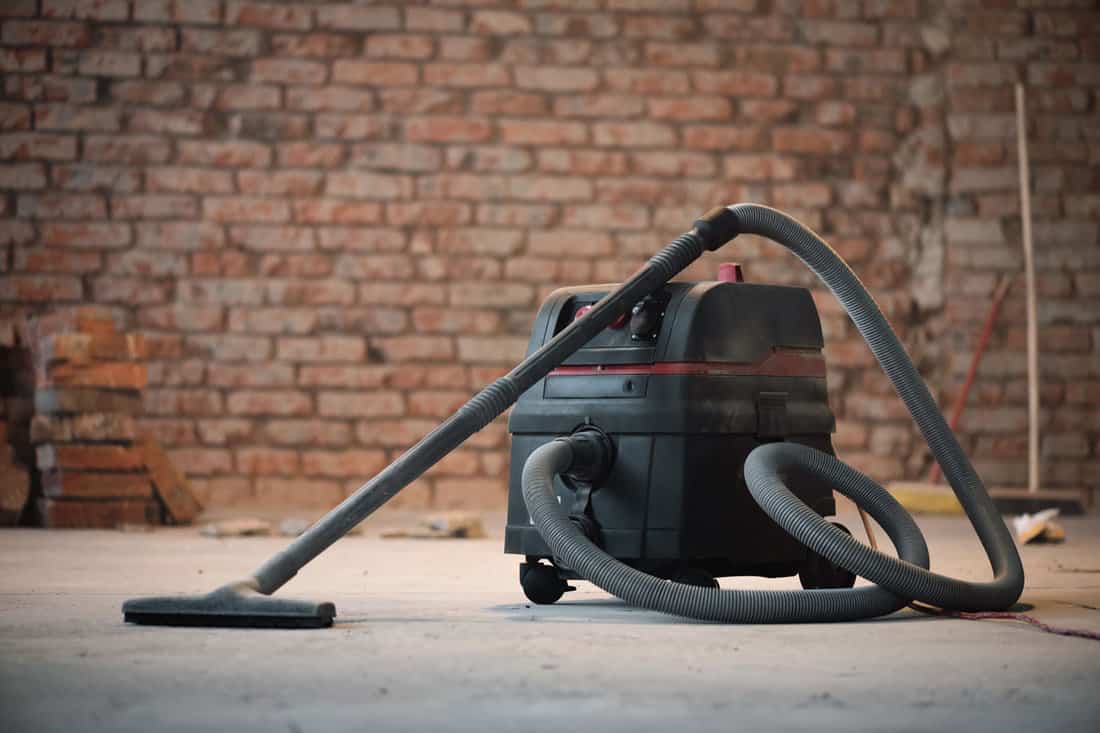HEPA filters are common on most vacuum cleaners. However, these filters can become clogged, affecting the performance of your vacuum. Does your HEPA filter keep popping out? We researched this for you, and here is what we've learned.
A HEPA filter that continuously pops out indicates that your filter has become clogged. Filters that continue to pop out indicate that the air is unable to pass through causing the air pressure to blow the filter out. To keep it from popping out, it must be replaced.
HEPA filters are efficient against particles such as dust and other impurities. To learn more about what HEPA filters do, keep reading.
How To Keep Your HEPA Filter From Popping Out
HEPA filters are constructed from thin glass and plastic fibers. These fibers are tightly bound together to prevent particles from passing through. A HEPA filter that continuously pops out indicates that your filter has become clogged.
Filters that continue to pop out indicate that the air is unable to pass through, causing the air pressure to blow the filter out. To keep it from popping out, it must be replaced.
How do I know if my HEPA filter is dirty?

If your HEPA filter is dirty, it will appear black and have large clumps of dust and debris. That is a sign that your filter needs to be cleaned or replaced. Your vacuum cleaner may also have a hard time functioning, and you will notice that there is an odor every time you use it.
Remember that clogged filters will reduce the performance and suction power of your device. They will also restrict the movement of air within, potentially causing your vacuum cleaner to overheat.
Your vacuum's components or motor might sustain harm. Regularly check the condition of your filters.
When should a HEPA filter be replaced?
We sometimes add affiliate links and content that was curated and created by our team with the help of advanced ai tools to help showcase the best design styles.

It is important to first determine whether your HEPA filter is permanent, replaceable, or washable. By knowing this, you can prevent damage from occurring to your vacuum cleaner. It is always best to check your manual if you're unsure.
Permanent
A permanent HEPA filter is what the name implies. They should last for years, depending on how well you take care of them. Permanent HEPA filters should be properly cleaned about every six months to remove dust and debris from the surface of the filter.
Check this HEPA vacuum here on Amazon.
They will only need to be replaced once they get damaged. A permanent HEPA filter can be cleaned by softly brushing it or cleaning it with a vacuum.
To avoid damaging the filter, it is important to go through it with extreme caution, as these filters are delicate and tend to break easily. It is best to check your manual, as permanent HEPA filters should not get wet and should not be cleaned using water.
Replaceable
HEPA filters need to be changed every six months, on average. This may vary depending on environmental factors and how often the machine is used. For those who suffer from severe allergies to air pollution, you can also check your HEPA filters every two weeks.
It is best to keep them maintained by changing the filter as soon as it appears discolored. The HEPA filter needs to be replaced if a stinky odor is observed when using the vacuum cleaner.
There are several types of HEPA filters. Be sure to check the model of your vacuum before purchasing one. To replace the HEPA filter of your vacuum, check the manual. In case you lost your manual, there are ones available online dedicated to your vacuum cleaner.
Check this HEPA filter here on Amazon.
Washable
Some HEPA filters should be replaced rather than cleaned. If the filter is advertised as washable, it is possible that you can wash it and it will still work.
However, there is no standard for washable HEPA filters, and no public tests have been conducted to determine how effectively these filters function after they have been washed.
Clean a washable HEPA filter by rinsing it under water. Try to keep your hands away from the filter material and only let it come into contact with water. Let it fully dry. A wet HEPA filter may allow the formation of mold on the filter's surface.
It is preferable to give it 24 hours to dry before reinstalling it.
Can HEPA filters be washed and reused?

HEPA filters tend to clog more quickly than average filters since they capture a large portion of particles in the air. While certain HEPA filters need to be replaced frequently, others may be cleaned and reused.
You may inhale some of the pollutants from the filter while cleaning it. Even if you can clean your HEPA filter outdoors, some of the particles from the filter will circulate in the air, which is why it is best to replace your filter rather than clean it.
What does a HEPA filter do on a vacuum?
The HEPA filter in your vacuum cleaner is made to filter airborne particles in an effort to enhance the quality of the air. HEPA is an acronym for high-efficiency particulate air. At least 99.97% of dust, pollen, mold, germs, and other airborne particles with a diameter of 0.3 microns may be removed by this kind of air filter.
Is a vacuum HEPA filter worth it?
![Removed filter from the HEPA vacuum cleaner after cleaning a wide household, Does Your HEPA Filter Keep Popping Out? Here's Your Fix! [All Vacuum Models]](https://homedecorbliss.com/wp-content/uploads/2022/11/Does-Your-HEPA-Filter-Keep-Popping-Out-Heres-Your-Fix-All-Vacuum-Models.png)
HEPA filters provide superior purification. They are quite effective at removing dust and other pollutants. A standard vacuum would return these particles to the air.
To make an effective decision, let us discuss the pros and cons of using HEPA filters in vacuum cleaners.
Pros
Here are some of the advantages of having HEPA filters in vacuum cleaners.
Purify the air
HEPA filters, in particular, are excellent at removing fine particles such as dust mites, pet dander, pollen, and mold spores as they can remove up to 99.97% of any airborne particles with a size of 0.3 microns.
Reduces symptoms of allergies
HEPA filters can help reduce allergies by capturing dust, pollens, and other pollutants.
Variety
HEPA filters may be permanent, replaceable, or washable.
Cons
Here are some of the disadvantages of having HEPA filters in vacuum cleaners.
Inability to eliminate all pollutants
HEPA filters do not guarantee the removal of pollutants smaller than 0.3 microns in size from the air, including viruses and certain bacteria.
Costly maintenance
HEPA filters trap most of the particles in the air, which means they tend to clog faster than non-HEPA filters, requiring frequent replacement.
Fragile
HEPA filters can be quite fragile and tend to break easily. Typically, they are made of fiberglass, which is why they should be handled with care.
Are HEPA filters universal?
HEPA filters are not universal. There are different types of HEPA filters and they may vary depending on the brand and the manufacturer.
Some people might get misled by seeing the word "HEPA" on vacuum cleaners. Note that just because they have "HEPA" in the description does not mean it is a HEPA filter.
You might encounter some that have a description that says "HEPA like" or "HEPA type" but does not give specific information like particle sizes. A true HEPA filter will always quote the number "99.97% of particles as small as 0.3 microns."
This is the benchmark for HEPA filtration, and if your HEPA does not meet the standard, it is not considered true HEPA.
How much do HEPA vacuums cost?

For a residential HEPA vacuum cleaner, you may expect them to cost around $200 to $1,200, depending on your specific requirements. Heavy-duty professional HEPA vacuum cleaners for commercial, institutional, or industrial cleaning applications may range from $750 to $15,000.
Final Thoughts
HEPA filters can easily clog most vacuum cleaners, as they are designed to capture fine particles. Your filter continuously popping out indicates that it is clogged.
It will appear black and have large clumps of dust and debris. Determine first whether your HEPA filter is permanent, replaceable, or washable before planning to clean it.
Permanent HEPA filters last for years, reusable HEPA filters need to be changed about every six months, and washable HEPA filters can be cleaned with water.
It is best to consult professionals or look at your manual. Want to read more? Check out these related articles below:
Do Central Vacuums Have Filters? [How Difficult Are They To Replace?]


